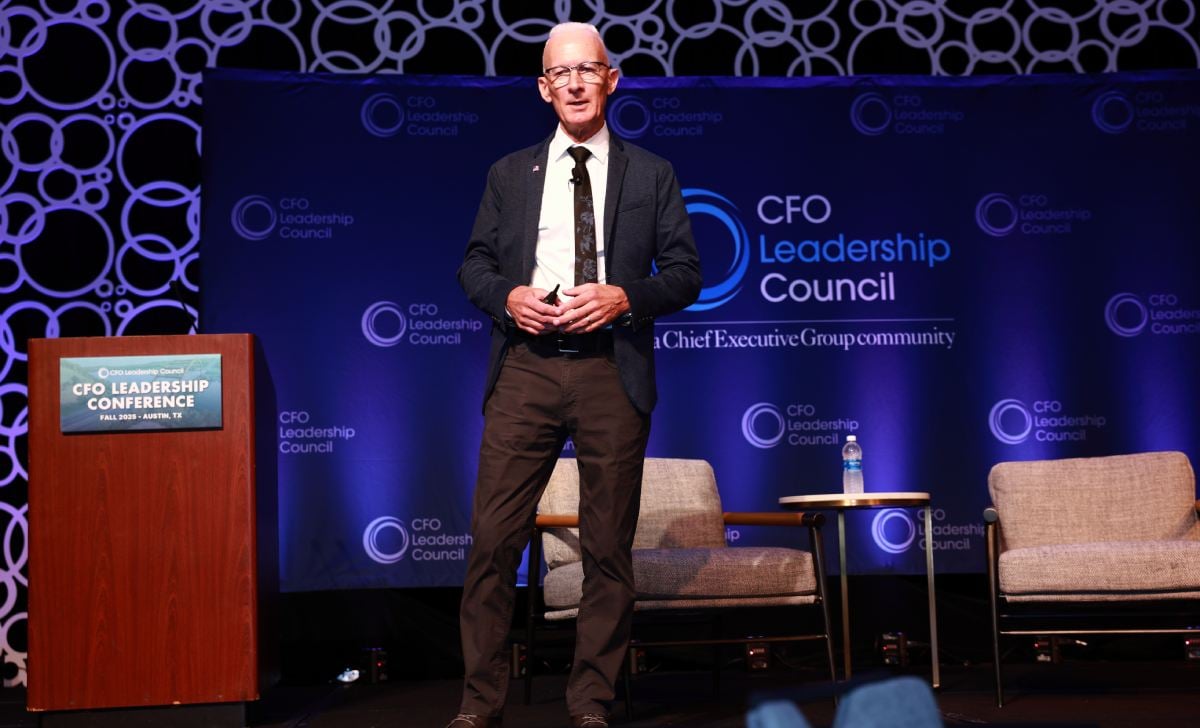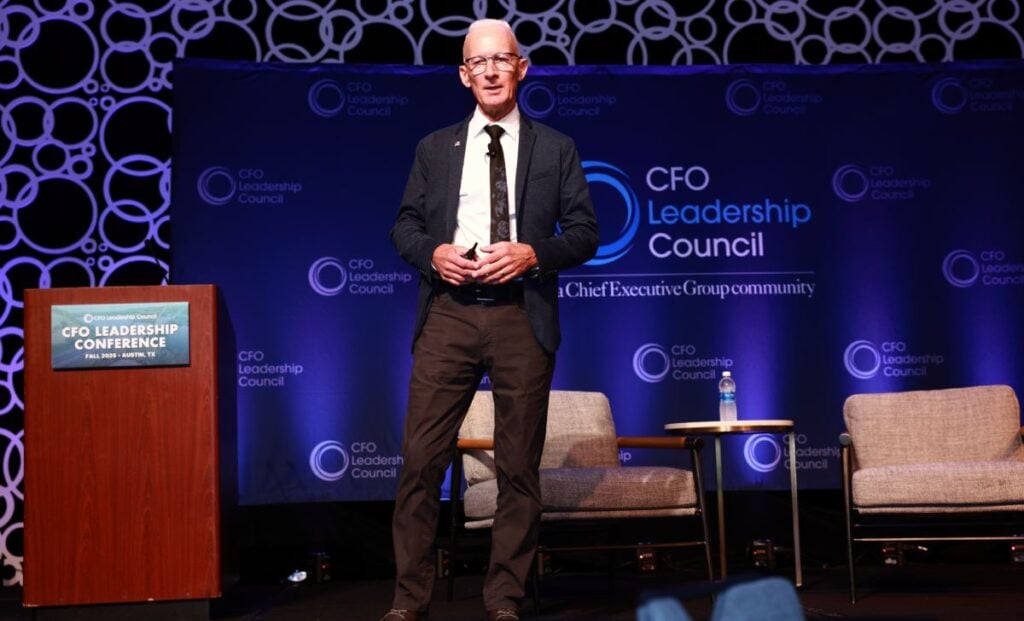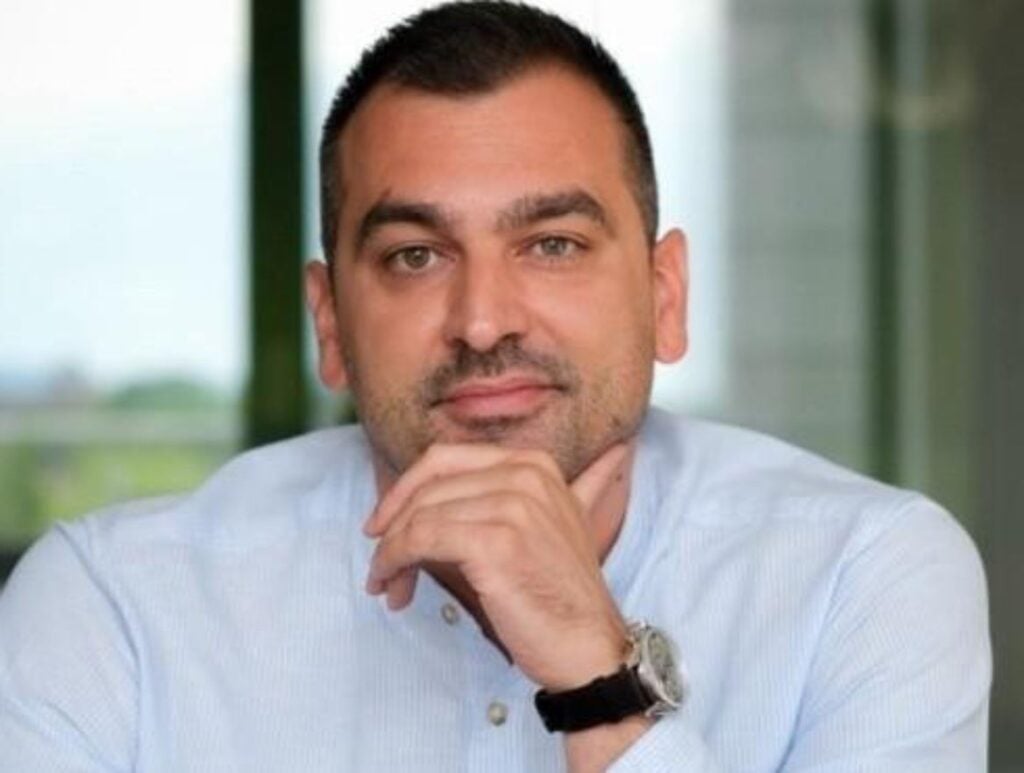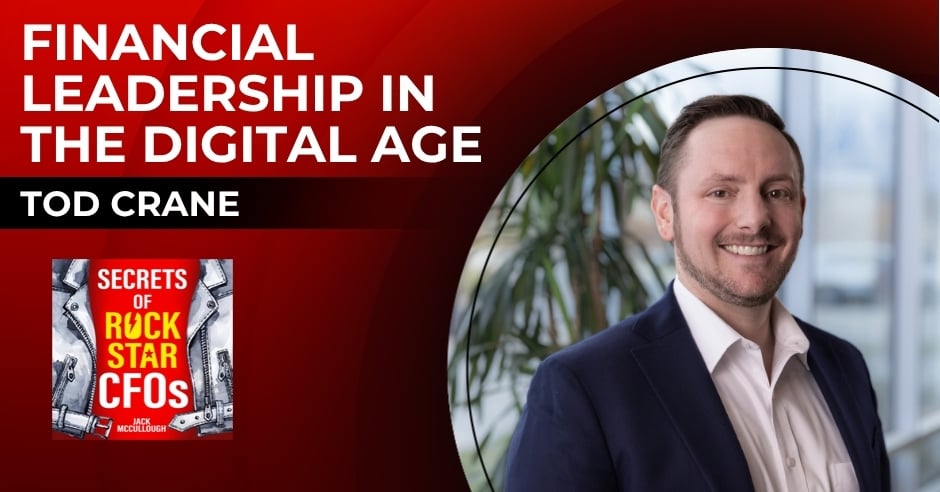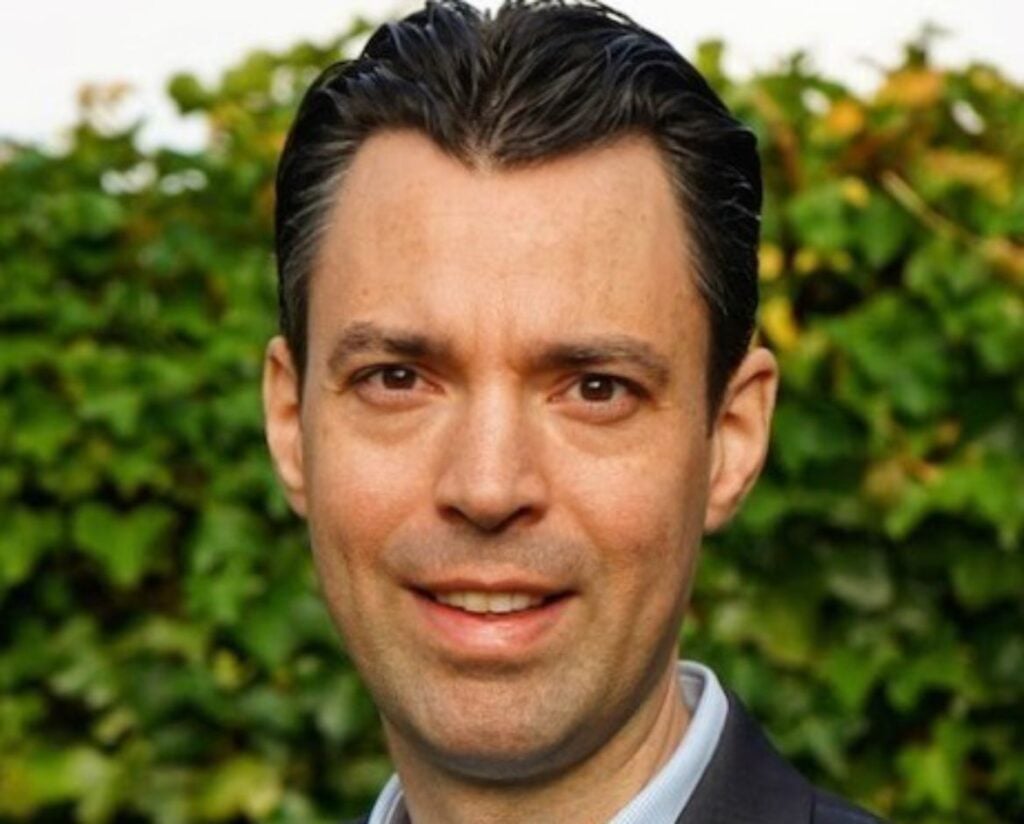Austin, Texas—How does a CFO become a great leader not just for the finance team but the entire organization?
On Tuesday, LTC Oakland McCulloch (Ret.), a decorated U.S. Army officer (photo above) and author of Your Leadership Legacy, gave the 400-plus attendees of the Fall 2025 CFO Leadership Conference his keenest insights into how to ignite their leadership potential. We’ve boiled them down to nine major points.
Leadership is about selfless service.
“If service is below you, then leadership is beyond you,” said McCulloch. A leader has to set an example in everything they do, every day, “because the people on your team are always watching.”
You are the moral, ethical and lawful compass of your organization.
“We have to get back to doing good things if we want this country to be as great as it can be,” McCulloch said. “And that’s your job as a leader. If you’re the leader, you have to take charge.”
That also means developing the culture of your organization, and you must come with a clear vision and a well-defined plan. “And the vision and culture need to be intertwined,” McCulloch said.
Give the team the “why.”
When McCulloch was in the Army, he admits it took him a while to figure out that there was nothing wrong with an 18-year-old coming up to him and asking why an order needed to be executed. “What I have found out is, if you can explain the why, [your team] will do anything you want them to do,” he said. “It’s the people that work for you that you have the privilege to lead that are going to get you there, and if they don’t know where you want to go and why, how can they help you?”
Be decisive; in other words, make decisions.
“Anybody in here ever work for somebody who couldn’t make a decision? That’s horrible,” McCulloch said. “You not only lose all your faith in that organization, you lose it in that leader as well.” When McCulloch asks a leader why they didn’t make a decision, the typical response is, “I didn’t have enough information.” However, “that world where you have all the information that you want to have to make a decision, that place is called fantasy land.”
Hold people accountable, delegate authority.
Many problems in leadership today stem from the fact that people often use three words interchangeably—accountability, authority and responsibility. “They are three distinct words that have distinct meanings.” Said McCulloch: I know accountability and responsibility are dirty words in our society today. We have to get past that. We have to get back to holding everybody accountable.”
“The best leaders I’ve ever worked for delegated all the authority that they could to whoever they had signed a project to, or a mission to or a job to, and let them do it,” he continued. “If you don’t give them the authority, then how can they make it happen without coming back to you every five minutes and asking for your permission, which is a waste of their time and your time?”
Communicate better.
If you can’t get up in front of people and talk, you can’t be a leader, says McCulloch. However, you can become someone who does that and does it well. That’s because it’s a skill, just like any other. To communicate well with people, “you must be concise, succinct and easily understood,” says McCulloch. “When you communicate to people, that adage, ‘if it can be misunderstood, it will be,’ is absolutely true.”
Have a mentor, be a mentor.
“Nothing says your mentor has to be in your organization, nothing says they have to be above you, and nothing says they have to be in your profession,” McCulloch said. In fact, McCulloch advised attendees to have mentors outside of the profession, “because everybody in your profession has been educated the same way.”
Leadership is about getting results.
Good leaders demand results from their teams, McCulloch emphasized, “because results do matter in the real world.” Everyone doesn’t get a trophy. “In the real world, where you work, where I work, results matter, and you have to demand results of people.”
Pass it on.
McCulloch advised the finance leaders in attendance to continue building their leadership skills through reading, attending conferences, and keeping a leadership journal. And to be cognizant of this fact: Great leadership handed down from generation to generation, and what develops great nations [or companies or any other group of people].
“The next generation of leaders that you help create, who then help create the next generation of leaders who then create the next generation of leaders—that is your legacy,” McCulloch said.

